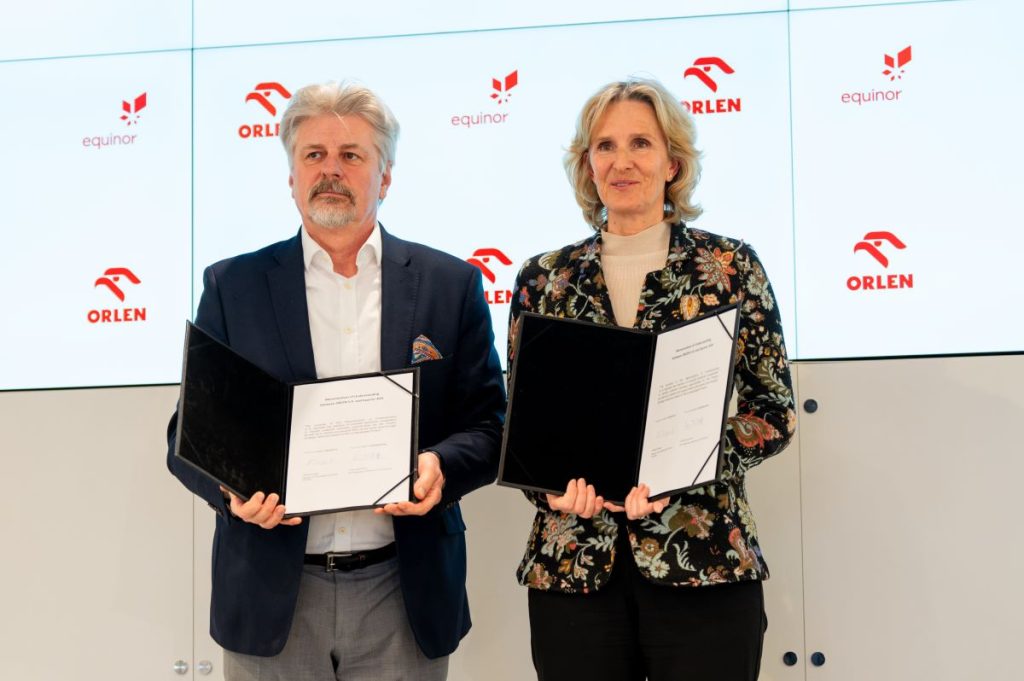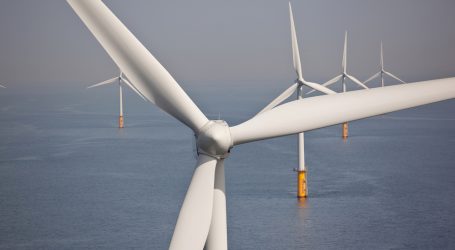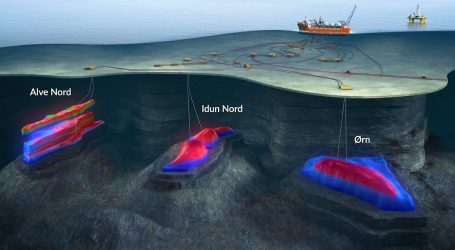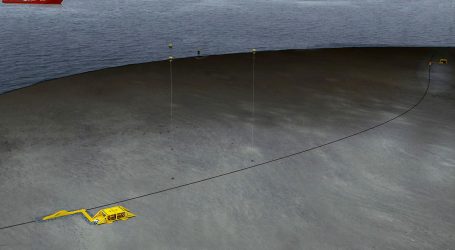ORLEN and Equinor sign memorandum on CCS cooperation
According to the agreement, ORLEN and Equinor will carry out an identification of potential CO2 storage sites. The sites in question are both onshore and in the Polish part of the Baltic Sea. In the next step, the partners will analyse the possibility of joint ventures, based on the selected storage sites in the country.
– Cooperation with Equinor is a milestone in the implementation of ORLEN Group’s strategic goals. We are joining forces with an experienced and motivated partner to develop unique know-how in CCS technology. On the basis of these competences, we want to build a new, prospective business area that will strengthen ORLEN Group’s decarbonisation potential. At the same time, it will stimulate the emergence of a whole ecosystem of companies that, by cooperating with ORLEN, will develop, build value and offer new jobs. In this way, we are fulfilling our role as a leader in energy transformation,’ stresses Wiesław Prugar, ORLEN Management Board Member for Upstream.
– ORLEN and Equinor are today embarking on a new stage of cooperation, building on the strong foundation of their existing energy partnership. Both companies are determined to ensure the energy security of their customers while implementing low-carbon solutions and developing renewable energy. The agreement signed today paves the way for the joint exploration of carbon storage opportunities in Poland. Acting together, Equinor and ORLEN will complement each other’s competences to effectively achieve their goals,’ says Irene Rummelhoff, Vice President Marketing, Midstream and Processing at Equinor.
In its new strategy, ORLEN has declared that it will achieve the capacity to capture, transport and store 4 million tonnes of CO2 per year by 2035. Part of this capacity will be used to decarbonise the ORLEN Group, including its petrochemical and refining assets. The rest will be offered to other companies as a service.
Norway’s Equinor is one of the most experienced companies in Europe when it comes to carbon storage. The company started storing CO2 in the structures of the Sleipner field as early as 1996. Today, the company is involved in several major CCS projects in North-West Europe and the USA. Among other things, Equinor is a shareholder in Northern Lights, the first cross-border CCS project to provide carbon storage on a service basis. The CO2 handling terminal was commissioned in September 2024 and the first customers will deliver carbon dioxide in mid-2025. As part of the initial implementation phase, Northern Light offers the possibility to inject 1.5 million tonnes of CO2 per year. In addition, Equinor holds several CO2 storage licences on the Norwegian Continental Shelf, in Denmark, the UK and the US. Last year, together with partners TotalEnergies and BP, it obtained the final investment decision (FID) for the Northern Endurance Partnership project, a CO2 transport and storage solution, and Net Zero Teesside, a gas-fired power plant with a post-combustion carbon capture facility.
ORLEN’s CCS plans, and the resulting collaboration with the Norwegian partner, are in response to the company’s ambitious decarbonisation targets and new European regulations. The EU regulation on carbon-neutral industry, the so-called Net-Zero Industry Act (NZIA), came into force in June 2024. Its provisions are intended to increase the competitiveness of European companies in carbon-neutral technologies and improve access to these technologies. The NZIA, among other things, sets targets for building CCS capacity. By 2030. The European Union is to have the capacity to inject 50 million tonnes of carbon dioxide per year. The obligation to meet this target rests with the EU’s natural gas and oil production companies, including, among others, ORLEN.
According to the NZIA, CCS is intended to enable decarbonisation for industries that, for technological reasons, are unable to significantly reduce the amount of carbon dioxide produced during their operations. These include the cement, steel and chemical industries. In their case, the way to avoid CO2 emissions into the atmosphere will be to capture carbon dioxide, which will then be transported to storage sites and injected into deep geological structures. With CCS, companies in these industries will be able to continue to operate in the EU, despite increasingly stringent targets for reducing CO2 emissions into the atmosphere.
Source: PortalMorski.pl




